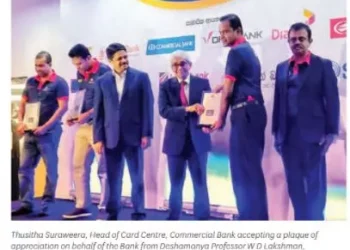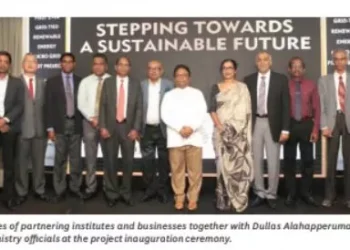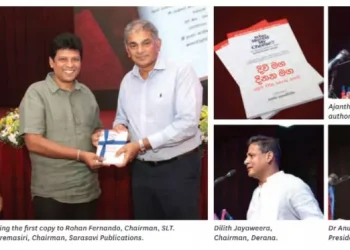Priyantha Talwatte, Director/CEO, Nations Trust Bank (NTB) is the first CEO to be appointed from within the Bank. He has grown with NTB and was pivotal in establishing American Express credit card business in Sri Lanka. The CEO speaks about the nurturing culture of the organization, where the adoption of global best practices has enabled NTB to be different from the rest. During the lockdown period, NTB was able to respond fast as it had already established technological advancements and digital platforms. Priyantha Talwatte says that Sri Lanka should reset and make use of the opportunities that have arisen during the COVID-19 period as Sri Lanka is ahead of the pandemic recovery curve and managed to control community spread very well. He further states that he believes in team spirit, and combining capabilities enable greater value addition and growth.
By Udeshi Amarasinghe.
Photography Menaka Aravinda.
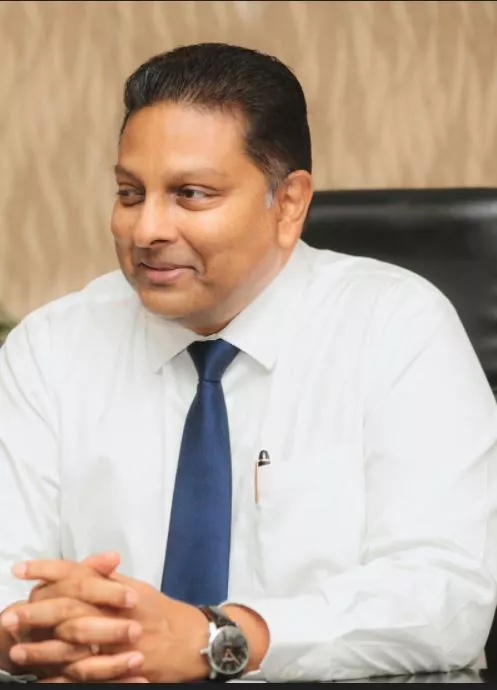
You are the first CEO to be appointed from within Nations Trust Bank. Can you tell us about your journey?
I started in 2002, the Bank at that time had only 12 branches, PAT of 22.4 million and 300 employees. I joined as a corporate management member into a two-man department, where I had one colleague. It was a promising opportunity, to be part of creating a new bank, as the NTB’s primary shareholders were John Keells Holdings, Central Finance and IFC with an almost blank sheet of canvass.
I have been with NTB for 18 years, in the Bank is 20-years journey. During this period, we have seen waves of transformation in terms of innovation, expansion, commencing new business verticals, change in technology shifts, building capacity and sharing dreams. When I started I had no ambition of becoming the CEO, but I enjoy the challenge, to create and build a whole new organization and capabilities. We have a great team and throughout the years, the Bank has had great teams that enabled the growth and development of the organization. I like to think of it as being an enabling environment surrounded by great people and clients. NTB draws influence and learning from John Keells Holdings, and Central Finance in terms of governance and guidance on shaping strategy. The successive chairman’s and board of directors and successive CEO’s and other leaders have enabled a great environment and timely guidance to shape the Bank’s journey thus far.
One of the turning points for me in the organization was, when I had the opportunity to commence the American Express Credit Cards business in 2003. I did the initial feasibility with a young set of professionals. It was a new experience, where we had to create a whole new ecosystem, a new clientele, dealing with a network of merchant service establishments, dealing with our global partners, and developing various capabilities in the organization, building teams and working through three different credit cycles. We were very clear even at that time that we wanted to become the number one credit card business in the country.
During the course of the years, there were many other important milestones that we surpassed in our journey. NTB grew from 12 branches to 97 branches; we focused on the segmentation of customers and our entire model was built upon customer centricity and value propositions, we develop unique sales and service culture in the organization, We have always obtained customer insights, views and ensured customer core creation in most of our developments. We have nurtured great teams and built new capabilities using technology and data. We built strong risk management capabilities, and credit scoring and rating systems. Above all we have developed a great participative and contributory culture in our organization, where people could grow along with the organization. These were the cornerstones in the growth story of NTB.
Teams were built at various levels of the organization, it was not only the senior team, there were diverse teams that were involved in the development of the Bank. We have always challenged ourselves and benchmarked ourselves against the best in class. This enabled us to look at the banking industry globally from our formative years. We did not want to simply excel in the local context only. Therefore, we looked at our products and services, channels, value propositions, our operations, and service delivery model very differently. We developed our people so that they had a wider perspective. Most of our senior staff have participated in overseas training in various parts of the world, and also working with global partners have enabled us to span boundaries.
NTB also took on a very early call on technology. Most of us come from backgrounds of technology and information management business back- grounds. In 2003, when we started the credit card business we were running our back-end operations from India. We had international lease lines, and systems were in India. In today’s context, it would be called a Cloud. The front-end operations were managed in Sri Lanka while the back-end operations were done in India. We wanted to first acquire an understanding of how to operate the business, build our muscle in running the business, make the required capital investments in systems, investment in technology, and adaptation of technology after we establish core capabilities and achieve critical mass in our business model. We have continuously followed this process throughout the journey of the Bank, where we have evolved from the very basic technologies to fit for purpose subsequently.
I believe that my role as CEO is a small part of a bigger effort of our team. My formative leadership lessons were in sport playing fields, and we always believe that the ultimate outcome is based on the strength and contribution of the team. Sometimes people get carried away when conditions are good and the organization performs well, thinking that it is individual brilliance that had ensured the level of performance, but that is never the case. Sometimes the circumstances lift you up, but if you have an engaged reliable team then you can perform together and then achieving sustainable results is very possible.
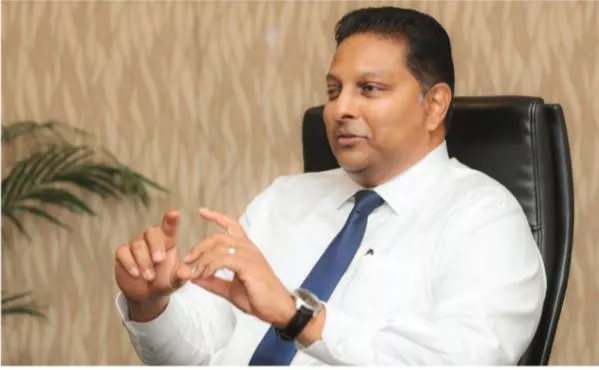
Every member has a role to play. Generally, we believe that if it is worth doing, we should do it to the best of our abilities. We are firm believers in looking at best practices and benchmarking against global standards. Because it is only then that you can build capacity and develop productivity and allocate re- sources. It is something that should always be done. Our interaction with our colleagues is always around developing a growth mindset, how we improve the organization, and how we improve ourselves. Of course, we celebrate team achievements.
If we look at the American Express business, you were able to make it completely unique to Sri Lanka. Exclusive but also accessible. Can you elaborate on this?
One of the critical decisions made by the Bank was the partnership with Amex. We stressed that the credit card operations will be set up using global best practices. It was a novel experience for the country as well. By benchmark against global best practices you are able to increase productivity, deliver value and ensure greater development of the organization and our people and provide our customers a world-class service experience. We wanted to go beyond what American Express would sometimes do. If you look at outside the US, we have one of the largest market shares for Amex in Sri Lanka. That is because we were very focused to say that we are going to build this business from the time we have started to become a redefining business for us.
That was the focus that NTB and the leadership team had on building the Amex business. The board of directors extended the greatest support and approved whatever we needed to do. We were keen to see what we could do in a relatively small market. We used to define our limitation as the limit of our imagination. That helped us to take many important steps. As I mentioned, the technology aspect was initially on an outsourced model. We acquired the best management capabilities, marketing and servicing capabilities.We run one of the best 24X7 contact centers in the country. We were one of the first banks to start a fully-fledged analytics team with data scientists supporting business decisions. We build data- based rating and scoring models. I would attribute the success of Amex to our very responsive customers and to the great teams in our organization.
As the new CEO, what are your plans or strategic direction?
We did a 360-degree review mid last year and developed a strategic plan with long-term direction and with a three-year operating plan. We held reviews on the areas we wanted to build upon to take the organization forward. We looked at productivity in terms of global benchmarks and decided on what we want to do and what we do not want to do. Technology was a key enabler in this plan, we have done a lot of work in the technology sphere over the years. By the time the lockdown happened, the Bank was prepared to remote service our clients. Our 2019 midyear organization review and the planning process helped us to understand what we had to do during the lockdown. When we went into the complete lockdown mode, we have to confess, it was uncertainty because no one knew how to deal with it, there was no play book. But because of the work we had done few months before, which was still fresh in our memory, we exactly understood how the organization would function, which pillars to operate, what are the different cost points, what are the customer segments, what are the different channels to operate and what are the capacities. While it was very uncertain times, we knew what we had to do during the lockdown.
Our strategy was to excel in the segments that we had selected to engage and build our share in those spaces, and to be clear on where we do not want to expand. We were clear in our vision of serving our individual customers and businesses, supporting their financial goals and aspirations. Last year, as we developed our banking strategy to operate in a digital world, we also included a new dimension to our vision to provide timely information to our customers.We have a very strong franchise value compared to the other banks. Our franchise value is derived by the customers we already serve. The names of individuals and businesses we serve are the drivers of the Sri Lankan economy and the movers and shakers of our community. We do ongoing business with them and our focus is how we could enhance our wallet share with the customers we have. Our strategy is how we focus and do more with our existing clients.
We have a very progressive and independent board, with very diverse capabilities. It is a pleasure to be part of an engaged board. They have been extremely supportive during good and difficult times. They have reached out throughout the lockdown period and we had virtual discussions and board meetings. They have always supported the Bank in what we do and what we want to do. It has been an excellent 20 years with the Board supporting and guiding the way forward.
The NTB team is a comparatively ‘young team’, what can you tell us about this?
We are no longer young. However, we want to maintain that young energetic spirit. We had to always be different in the market. We now combine young energetic spirit with tested profes- sional maturity. We have many customer facing team members who are relatively young, but we have now layered the organization in a way that the more technical, multidimensional functions are complemented with more experienced and mature capabilities. We are now in a position to go beyond being young, we are young spirited but more mature in areas that matter. This is our Nations’ spirit.
Your transition to CEO happened during the lockdown period. How did you face the challenge?
I was nominated at the beginning of 2019, when the Easter Sunday attack occurred, it was an educational process on all sides. I worked in Sri Lanka, during the entirety of the conflict period. We are a very resilient nation, with a strong resilient people with a live culture. We face and emerge from crisis situations very well. When my transition to the CEO position happened, we had strong teams operating in the Bank. We have a very capable senior team and we have been working together for a very long time. When the transition point came, we had to take action to ensure continuity. All hands were on the deck helping what we had to do. Our first priority was our staff. We set ourselves the first objectives of that we would not expose any of our staff to the pandemic. That was our starting point. We formed a ten-member command center that was from different areas of the corporate management team and they on a daily basis looked at what was happening within the organization, in the country and globally. The next level of management and staff teams put their hands up and came to the party. We looked at the curfew points, the areas in which patients were being detected, vulnerabilities, and which branches needed to close amongst other matters. We continued to assess the situation from day one, on an evolving basis and we took decisions and action.
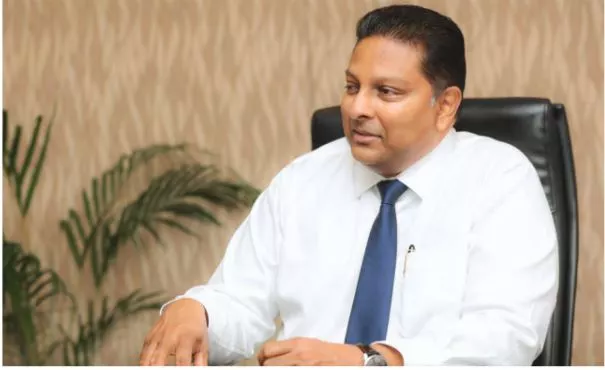
Through the command center, we started looking at communication, personal hygiene standards, social distancing bringing in the sanitizers and the face masks, well before it was made mandatory. These were all benefits of a connected world and a connected team. We looked at what was done in other countries, and what the WHO recommended best practices were. We inspected our canteens, elevators, work places, insisting on people to adhere to social distancing, wear face masks, washing their hands, sanitizing and personal hygiene not only at work but also at their homes and in their communities.
Our first objective was to ensure that our staff were safe. With everything that was happening there was no time to think about transitions. All staff members were divided to two teams, a blue team and green team. Banking was made an essential service; therefore we rotated the teams where one team worked a particular week and the other stayed home.
Likewise, we swapped between teams on essential work. If there were non- essential work, we gave those staff to work from home. We also gave the liberty for everyone to make their individual decisions. We as a team, were mindful about what was happening, nationally. At the peak of the pandemic when we were running essential services, we had our staff who were from outstation boarded in Colombo to go home and be safe. For staff who were within close proximity to office, we provided them transport to come to work, we did not want them to be exposed in public transport. We had to function as well, but we did not compromise the safety standards of our staff. The senior team came to work every day. It was a very interesting time for me and for our staff as well.
We were one of the first organizations to reach out to the frontline medical staff. We went in and asked them what their requirements were and at that point, they were in need of scrub kits. We collaborated with the Sri Lanka Navy and where NTB provided the material and the Navy provided the labor to manufacture the scrub kits. We donated these items to the medical services.They were doing a fantastic job, risking their own lives and we wanted to be up there setting an example and helping the national heroes of the moment.
As the pandemic was evolving, we also started evolving our playbook so to speak. From the first two weeks of complete lockdown we started opening our branches, and operating our clearing services as well as other function. I must mention that during the entire lockdown period our contact centers were running 24/7. Staff obtained curfew passes and some even slept in office. When the shutdown happened, we had many of our customers in different countries, in transit, separated from their loved ones, children were studying overseas, and many other requirements so we had to keep our communication lines open. We were accessible over the phone, by mail, digitally we were accessible, and our contact center was working full force throughout the lockdown period. It was a very interesting interphase, where we provided the services to our customers.
The first phase during the lockdown was when we started talking to our staff and we ensured that all of them were secure. Our HR team reached out to every staff member. The second phase was when we started calling all our customers. It was to inquire on their wellbeing and ask them how they were, whether they were secure. We all manage customer relationships so we all reached our customers. In certain instances, some responses were a simple thank you for calling. Because people did not have contact with the outside world or had very little. We asked them what could we do and that was appreciated very much by our customers. We strengthened our bonds with our customers, plus at that point we were ready with arranging home delivery items such as grocery packs. Today everything seems like a distant memory. We all went into a survival mode at that time. We found the ways and means of delivering essential items leveraging our franchise value. After the wellbeing calls we were able to connect to our customers once a week through the deliveries. It was not expected to be done by a bank and it was something that our customers did not expect. All our staff members were putting their hands up and volunteering to support the Bank in its endeavors. In this manner we made a very satisfactory transition. And now we call it COVID opportunity because it brought all of us together as an organization, as a team, as individuals, and as a country.
The bank has always been tech-savvy, and digitalization has always been a priority. How has that supported this ‘new normal’?
We did not expect this level of a lockdown. We had Business Continuity Plans, and contin- gency plans but nothing prepared us for this. At the time when we went into complete lockdown the Bank was already conducting 80 percent of its transactions digitally, which means we did not have too much room to digitize further. We were already on a journey that we had started several years ago.
Most of our customers were interacting with us digitally. We did not have a huge jump in incremental digital take up. There was a require- ment of cash. We had online transactions and we mobilized a mobile ATM vehicle, resumed our bank at your doorstep service to deliver cash. Even though you could do digital transactions, door to door delivery services were accepting only cash. Then we started delivering cash to some of our customers. For corporate or for business customers, we had online banking capabilities, which was not getting too much of traction previously but during the lockdown period that had tremendous opportunities, where many of our clients rushed to activate this facility. There was a very high level of adaptation of online banking for corporates. All in all, the pandemic was something that we were not prepared for but our digital capabilities complemented the journey we were going in.
How is NTB supporting Government initiatives?
Firstly, we must compliment the Government for the manner in which they managed the crisis, a 10 out of 10. We are all very appreciative of the action that was taken by the Government. The Government made the right decision to lock down, provide moratoriums, and provide working capital to businesses that were impacted. There may have been things that could have been done better. But, at the time when the situation was evolving, and no one knew what was happening, the Government and the Central Bank did a fantastic job. We are currently at a very comfortable state, but we need to make use of that ‘ahead of the curve’ position that Sri Lanka is compared to the rest of the world. We have to really look at this as an opportunity to take forward. We had two opportunities previously; one was immediately after the Tsunami, and the second was after the end of the 30-year conflict. The post lockdown period in the global pandemic is our third opportunity that we really need to make use of and leverage.
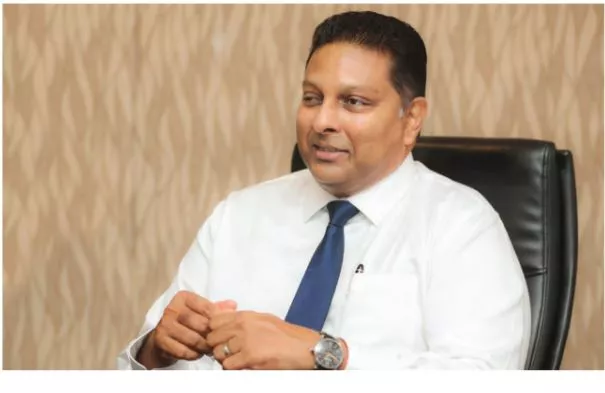
From an economic perspective, we were hard pressed due to drying up of foreign inflows from tourism, apparel, worker remittance and other exports. The temporary import restriction was a good strategy to manage the short-term. When Sri Lanka needed to strengthen the USD reserves, we also reached out to our global clientele especially Sri Lankans who live overseas and we supported them in opening foreign deposit accounts. These were special deposit accounts that were approved by the Central Bank. We were one of the banks that generated a very strong response because we ventured into it early on. We communicated the opportunity to the Sri Lankan diaspora living globally. It was a really a challenging time for the Government as well. The Government, the Finance Ministry, and the Central Bank, handled the situation very well. It was about survival. When everyone is focused on survival the best comes out. As a country it was a difficult period. We were called for meetings at the President’s Office, Prime Minister’s Office, at the Finance Ministry, and at Central Bank.
Very early in this journey, we launched a seven billion LKR fund called ‘Nations Diriya’ dedicated to supporting the revival of the pandemic affected organizations. One is ‘Viyaparika Diriya’ focusing on local industries, and the other is ‘Apanayana Diriya’, which is focusing on exports. We have now provided about 2.5 billion in lending and it is a whole package, which includes advice and financial tools. We will continue with the Nations Diriya program. That is our contribution to the business segments of the country, where we are supporting the revival of the industries and exports.
Overall how can the banking sector support the country?
The adaptation of technology in the banking industry is very important. Though we say technology, for the customer it is about ease of doing business. They look at digital functions as amenities. When they access the bank’s services on the phone, tablet or online, they simply want to get their work done. They are not thinking that they are using technology. The basic human requirements and needs are still there. While there are many wonderful technologies in the world, it is an essential to adopt to the appropriate technology. We believe that banking will get redefined, it is already happening, as we can see it in our own organizations. While customers still visit branches and use the ATM, it is becoming increasingly less as they are using more digital based services.
However, technology cannot stand alone. There needs to be a supporting infrastructure that comes along with technology. This is something we have been talking about for a long time in Sri Lanka. Today, there are road maps, with the President’s initiative, the Central Bank, and ICTA are discussing on the mechanism of enabling this support infrastructure. Technology will not work on its own. The future of banking will focus on the use of appropriate technology. The pandemic has shown us that it is necessary. On the banking side, to develop as a country and a nation, we need to be supporting credit. Credit is an enabler and having said that it is the responsibility of institutions like us; banks and the Governments must democratize credit. But if you look at the history of credit, it is societies and countries that have appropriate laws to protect the lenders and the countries which have been able to democratize credit. Credit is an enabler for societal growth. I believe for us in Sri Lanka, we need to rethink some of our archaic laws and regulations that are there in relation to credit. If you protect the lender there will be more lenders.
When the laws are unreasonable or draconian in nature, people begin to acquire credit from informal sources. Lenders are unable to price there risks so they restrict and decide who should have access to credit. In Sri Lanka, there are many restrictions and caps such as controlling on pricing and what you can charge, that is good for a very short time. But when it is too stringent, it limits the choices of the bankers. The bank might say they cannot extend the credit because they do not have the protection nor the ability to price the risk. Then that customer who wants credit will look for an alternative. If they cannot reach out to a bank or credible financial institution they will approach the informal sector such as loan sharks.
In this country, there are massive sums of money lent by non-banks who are individual people lending money to farmers, traders and there are absolutely no restrictions. So over regulation, which is intended to protect the borrower is now denied credit and is pushed out of the formal system. Its time we pay attention to these aspects.
Banks are a small controlled segment, which is full of regulations protecting the depositors money. For the best interest of the country, we are happy to support and be part of solutions finding terms to propose policy alternatives. We have to enlighten our populace about the basics of financial management, provide basic financial literacy, where it can even be included in our school curriculum. In our school curriculum, you teach everything else but not how to manage money. Literacy is one thing, there is a require- ment of financial literacy as well. There are enough and more banks and financial institutions in this country to serve the people. We need to relook at how they are being structured. We need to create awareness, responsibility and account- ability so that the lenders as well as the borrow- ers are able to do a more responsible borrowing and lending with very clear enforceability. Then the entire system will be more efficient.
Outlook for Sri Lanka?
I am very positive. We have some headwinds, but I am positive because we have gone back to ground zero. We have had years of neglect of local industries and this is a great opportunity to identify those industries and also have some strategic plans for those industries rather than a short-term plan. The selection of industries is important; we need to look at industries that have enough runway and enough head room to grow and develop, monetize and that has to be looked at beyond the shores of Sri Lanka. We cannot be looking at industrial development focusing only on 22 million people. I am very positive about the opportunities we have right now as a country. People have come together and they are united. We have to make use of this opportunity and make structural change. We have been talking to our teams, our customers and telling them to use this as an opportunity. Take it as an opportunity to relook at what we have done, rethink the propositions that we have, relook at our cost and productivity. Be bold enough to look at the best in class, global benchmarks. If we go on a productivity path in manufacturing or services, we can get to the next level.
It is not about the west or the east, benchmarks are independent. We should not shy away from adopting best practices. Internally and externally, it is important to benchmark against global best practices. When you have improved productivity, multiplier effects will follow.


